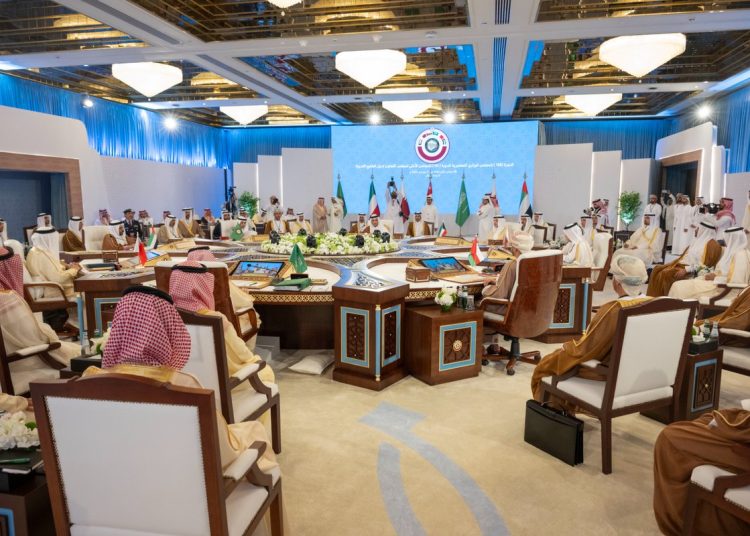Recently, Tehran welcomed the Minister of Foreign Affairs from Oman, whose abrupt visit transpired hot on the heels of the assembly of counterparts from the Persian Gulf in Doha. Though bilateral matters between Iran and Oman were certainly on the agenda, the implications of this meeting extended far beyond, resonating with regional significance.
Heightened concerns coursed through international corridors of power due to the Yemeni armed forces’ attacks on Israeli vessels. These actions, a reprisal for the Israeli offensives against Gaza, elicited trepidations particularly among Western states backing Israel, most notably the United States and the United Kingdom.
In the wake of these developments, the United Kingdom is reportedly advancing toward introducing a resolution targeting Yemen in the United Nations Security Council. Concurrently, the United States has augmented its military stance in the strategic Bab al-Mandeb strait, a move that hints at the potential for an intensified crisis that could spiral into a wider regional conflict. Israel finds itself in a precarious situation; with a major portion of its commerce traversing from the Red Sea to the Indian Ocean, the ongoing Yemeni actions threaten to ensnare Tel Aviv’s economic lifelines.
Elsewhere, Saudi Arabia engages in overtures with Sana’a, striving to draw their conflict with the Yemenis to a close. However, Yemen’s role in the strife concerning Gaza adds layers of complexity, potentially impinging upon the Saudi-Yemeni dialogue.
In response, members of Persian Gulf Cooperation Council (GCC) are seemingly employing Oman as an intermediary to urge Iran and Yemen toward de-escalation. Yet, Iranian officials say maintain a stance of fraternity with the resistance groups, asserting that these entities make autonomous decisions and are not subordinate to Tehran’s directives.
Additionally, the political future of Gaza surfaced as a prominent topic during the Omani Foreign Minister’s discussions in Tehran. Presumably presenting the views and the recent discussions of the GCC, the minister anticipated Iran’s endorsement of a political initiative, purportedly initiated by Egypt. This proposal envisions a sequence of transitions: assimilating Hamas into the Palestinian Authority’s structure, transitioning power from Mahmoud Abbas to a technocratic administration spearheaded by Salam Fayyad, incorporating Hamas’s military arm into the Palestinian Authority’s security institutions, and orchestrating Egypt’s accommodation of a portion of Palestinian refugees from Gaza.
However, Hamas has not embraced this proposal. Egypt faces dual pressures from Israel and the United States concerning the absorption of Gaza refugees, and it perceives these political machinations as an outlet to mitigate such strains. Acceptance, though, harbors risks to Egypt’s national security. Despite financial overtures, the likelihood of significant support materializing remains dubious, and Gaza’s people may end up permanently relegated to the Sinai desert. Moreover, this resettlement could inadvertently reinvigorate the Muslim Brotherhood in Egypt, potentially rejuvenating the faction within Egypt’s political sphere after years of suppression by the security apparatus.
There exist pronounced disparities between Arab nations regarding their preferred approaches to the outlined issue. To illustrate, the UAE shows an inclination to position Mohammed Dahlan as a replacement to Abu Mazen, as opposed to Salam Fayyad, who is backed by both Saudi Arabia and the United States. Additionally, Qatar—through discussions with the Doha-based political arm of Hamas—advocates for the fusion of Hamas into the Palestine Liberation Organization rather than its absorption into the Palestinian Authority. This diplomatic maneuver was punctuated by a recent meeting between the Emir of Qatar and Mustafa Barghouti, the Secretary General of the Palestinian National Initiative and a member of the Central Council of the Palestine Liberation Organization.
Despite the inherent differences, a consensus emerges among the members of the GCC on at least one pivotal point: leveraging Iran’s rapport with the resistance factions in Lebanon and Palestine in the hope of persuading Hezbollah and Hamas to accept the proposed plan. To date, however, there appears to be no inclination from the resistance front to entertain this concept, as the dynamics on the battlefield have yet to crystallize.
From another perspective, Tehran ascertains that the genesis of these initiatives lies with the United States. The Iranian Foreign Minister, Hossein Amirabdollahian, articulated this viewpoint in Geneva on Tuesday, in discourse with his Tunisian counterpart: “They lack the capability to vanquish the resistance factions or to bring the Palestinian nation to its knees. Consequently, the US is devising political plans for the post-conflict period to offset the Israeli regime’s defeats. It is crucial for Islamic nations to remain vigilant to this.”
Underscoring all this is the undeniable significance of the Omani Foreign Minister’s visit to Tehran, an event that heralded Oman’s enhanced role in brokering dialogue between Iran, Yemen, and the Western world—a role that has burgeoned from Oman’s historical penchant for mediation between Iran and Western interests.
Taking into account these interpretations, several critical observations emerge:
- Much like numerous American endeavors concerning Palestine, this strategy fails to address the fundamental Palestinian right to self-determination.
- The aim of the initiative is to transmute Israel’s elusive military defeats into political capital.
- This approach harks back to external blueprints drawn up for Syria and Yemen which, ultimately, did not manifest successful outcomes.
- The internal discord amongst the architects and relevant Arab entities casts a substantial shadow of doubt over the viability of this plan.
- Moreover, the proposition should be viewed as an extension of ongoing political and military campaigns designed to subtly undermine the Palestinian cause over time.






